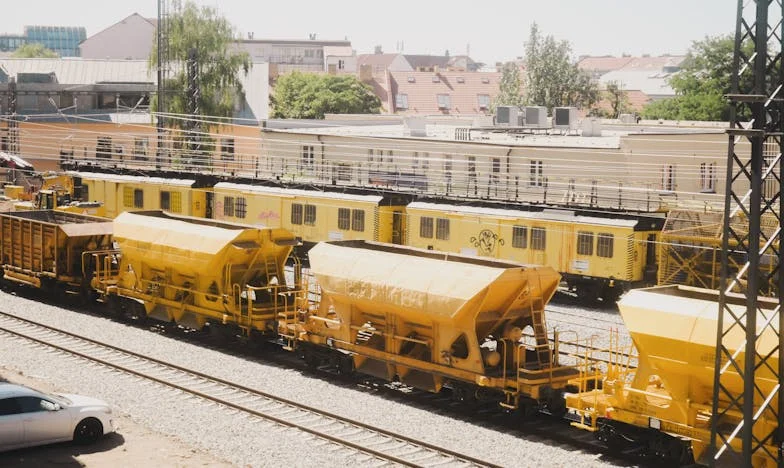Stranger at the Edge of Maplewood
“You can’t stay here! Nobody even knows who you are!” The voice was sharp, loud enough to cut through the heavy August dusk. I stood on the front porch of the creaking house at the edge of Maplewood, my hands trembling as I fumbled with the keys. The old wood seemed to absorb every angry word, every suspicious glare from the neighbors gathered at the edge of the yard. I wanted to disappear.
“She’s got the deed,” Officer Miller announced, holding up the yellowing envelope. “Everything checks out. She’s a distant relative of Mrs. Zofia Carpenter. You all remember her, right?” He glanced around, but nobody nodded. Instead, they whispered, words like “never had kids” and “stranger” floating through the summer air. I felt the weight of their eyes, the silent accusations.
I wish I could say I didn’t care. But the truth is, I did. Every box I carried inside felt heavier than the last, as if my own secrets had grown roots in this haunted house. My name is Emily Carpenter, and this place was supposed to be my fresh start. Instead, it became a battlefield.
The first night, I lay awake on the moth-eaten mattress, the ceiling fan wobbling overhead. Somewhere in the darkness, a dog barked. My phone buzzed—an unknown number. I answered, heart pounding.
“You shouldn’t be here,” a woman hissed. “Go back to wherever you came from.”
I didn’t sleep after that.
The next morning, I tried to venture into town. At the diner, conversation died as I entered. The waitress, a blonde in her fifties with kind eyes, forced a smile. “Coffee?” she asked, glancing over my shoulder as if expecting someone to stop me.
“Yes, please. Black.”
She set the mug down with shaking hands. “You Mrs. Zofia’s kin?”
I nodded. “That’s right.”
She hesitated, then leaned in. “She was a good woman. But folks here… they remember things.”
“What things?” I pressed.
She bit her lip. “She always said she had no family left. Not since the fire.”
“Fire?” My throat went dry.
She nodded, her gaze drifting to the back of the diner. “Long time ago. Before you were born, I’m guessing. The Carpenters lost everything. Folks said it was an accident, but…” She trailed off as the bell over the door jingled and a man in a faded ball cap walked in.
I left without finishing my coffee.
That night, the dreams started. Flames licking at the edges of my vision, screams echoing through the halls. I woke gasping, sweat soaking the sheets.
“You look like hell,” the cashier at the grocery store said the next day, not unkindly. “Rough night?”
“Just settling in,” I lied.
“You know, people around here don’t take kindly to secrets,” he said, scanning my groceries. “My advice? Don’t go digging.”
But I couldn’t stop. I spent hours in the attic, sorting through old trunks and boxes. I found faded photographs—my grandmother, Zofia, standing with a little girl who looked just like me. On the back: “To my Emily, with love. 1987.” But I was born in 1993.
I called my mother that night. “Why did you never tell me about Zofia?”
She was silent for a long time. “Emily, some things are better left alone. She wasn’t well.”
“What happened in the fire?”
A shaky breath. “Your father and I tried to protect you. She lost her daughter—your aunt—in that fire. After that, she changed. Became a recluse.”
“But I’m not her granddaughter, am I?”
“No. You were adopted, Emily. We never thought you’d want to know.”
The truth felt like a punch to the gut. I stared at the attic wall, the peeling wallpaper, the dust motes swirling in the light. All my life, I’d felt like an outsider, but now I knew why.
Word got around. The next day, a group of women stood at the edge of my yard, arms folded.
“You lied to us,” one said. “You ain’t blood.”
“I’m not here to cause trouble,” I pleaded. “I just want to understand.”
They didn’t budge. That night, someone left a dead bird on my doorstep.
I nearly packed my bags then and there. But something in me—stubbornness, maybe—kept me rooted. I started volunteering at the library, fixing up the house, planting flowers along the walk. Slowly, cracks appeared in the wall of suspicion. Mrs. Jenkins from the diner brought over a pie. Officer Miller stopped by to help fix a broken window.
But not everyone thawed. Rumors swirled: that I was digging up old graves, that I had come for revenge, that I was cursed.
I tried to let it roll off me, but the loneliness was crushing. I spent evenings talking to Zofia’s portrait, asking questions she couldn’t answer.
Then, one afternoon, I found a bundle of letters hidden under a floorboard. They were addressed to Zofia, from her daughter—the aunt I’d never known. The last letter was dated the night of the fire. “Mama, I forgive you. Please come home.”
Tears blurred my vision. I realized then that this house, these secrets—they weren’t just mine. The whole town had been living in the shadow of that tragedy, holding onto suspicion like a badge of honor.
I stood on the porch that evening, watching the sunset paint the sky orange and gold. The neighbors still whispered, but a few waved. I waved back, unsure if I belonged but determined to try.
Sometimes I wonder: Are we ever truly strangers, or are we all just searching for pieces of ourselves in the places we fear most? Would you have stayed, or would you have run?
